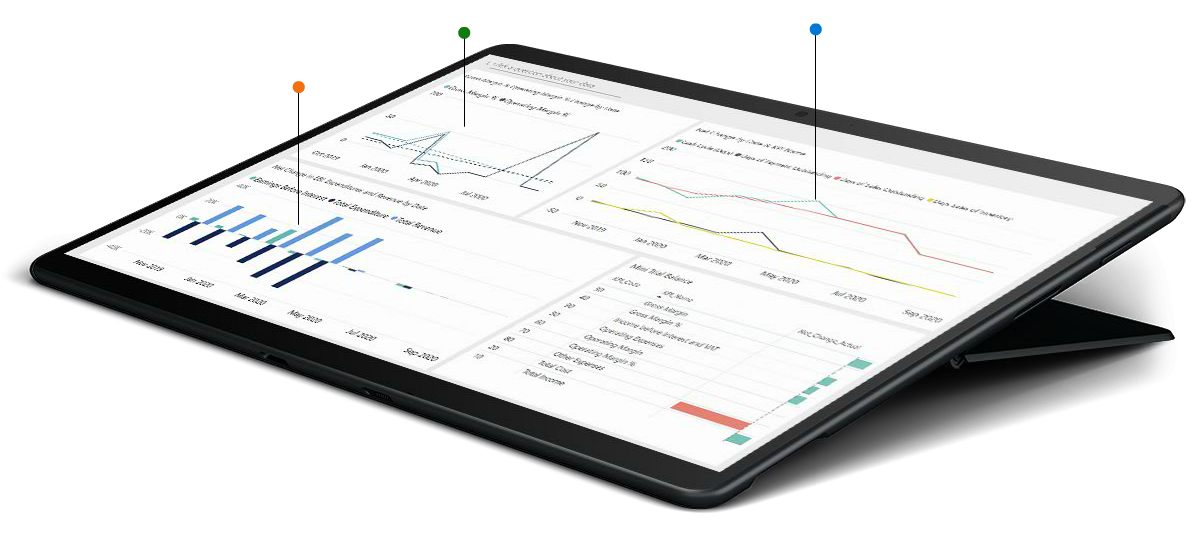| No. | Factors | Myths | Facts |
| 1 | Solution Approach | ERP Solution is a software that is managed by IT department which generates reports on data entry. | ERP Solution is a management tool which helps in automation, decision making and seamless accessibility of vital information. |
| 2 | Solution Priority | ERP Solution is a necessity for huge conglomerates having complex organisation structure, approval scenarios and business processes, while for SMEs and MSMEs it’s a luxury and an unwanted investment. | ERP Solution is a necessity for any organization of any size irrespective of its team size, gross revenues and process complexities so that organisations can be system driven instead being people driven. |
| 3 | Solution Acceptance | Majority ERP Solutions are complex to understand and has its own set of limitations during implementations. | ERP Solution usage complexity depends on the individual solution user interface, guidelines\modes of training and user involvements in the same. While Implementation complexity depends on individual business processes, configurations and customizations involved. |
| 4 | Solution Differences | Solution packages like ERP, CRM, SCM, MRP all are same. | All these packages are extensive and can be either used as a standalone solution with ERP or even can be incorporated inside a single ERP suite, but it depends on different vendors and the solutions they cater. While concept wise there are differences in all of them. |
| 5 | Solution Expectations | A magical system which will automate everything in a company starting from the control of every devices to basic report generation. | An ERP Solution is a logical system which believes in a simple concept of Garbage In-Garbage Out. It maps an organisation’s working scenario, arithmetic calculations, provides upcoming demand estimations and logical automations which ultimately helps an organisation in improving its productivity and enhance decision making. |
| 6 | Solution Resourcing | A dedicated resource is always required to manage the ERP Solution which again adds to the unnecessary expenditure list. | It solely depends on the type of ERP Solution that an organisation prefers because there are many companies running on complex ERP Systems without any dedicated IT resource wherein the solution administration panel is managed by the internal staff and for backups\ disaster recovery, support is provided by the ERP solution vendor. |
| 7 | Solution Usage | Difficulty is always there in getting trained users for an ERP System whereas for simple accounting packages you don’t need any deep understanding of concepts for system usage. | Here again there is no such need of deep concepts understanding like flow of logic and data across different activities when it comes to system usage. Users just need to follow the guidelines provided either from the trained user or the ERP Solution vendor to use their set of functionalities in the system. |
| 8 | Solution Selection | ERP selection is a time taking process, involving a lot of research and again there is no assurance from anyone that the returns of investment will be achieved. | ERP selection varies from different organizations, many do the selection based on costs, some do it just based on mutual references from their acquaintances while few follow the detailed process of multiple ERP evaluations based on their respective business process, solution User Interface acceptance, solution extensibility and overall expenditure for which they require an estimation of tentative returns. In this case if one does a research that’s going to add an additional feather to cap in the overall selection process. |
| 9 | Solution Availability | An ERP Solution should be completely tailored as per an industry’s process and it should cover all major processes and nuances for which it’s developed. While certain ERP Solutions have limitations while implementing it in certain typical manufacturing industries. | Nowadays, there are 2 types of ERP Solutions available in the market: 1. Industry Specific ERP Solutions 2. Standard ERP Solutions Both have their respective Pros and Cons, but if we talk about the worldwide acceptability the Standard ERP Solution acceptance is much higher owing to the solution reliability and extensibility. But there are again various factors which is taken into consideration before making a verdict. |
| 10 | Solution Deployment | Typically, these days people feel the best model for deployment is on cloud in terms of expenditures and the on-premise model is an outdated model which is no longer going to be in existence in the coming time. | There is no such predefined mindset when it comes to scrapping the on-premise deployment model for every ERP Solution. Although many ERP vendors have migrated completely to cloud offerings while some are offering both on-premise and cloud models. Now here costing on deployment models varies based on the ERP Solution. |


